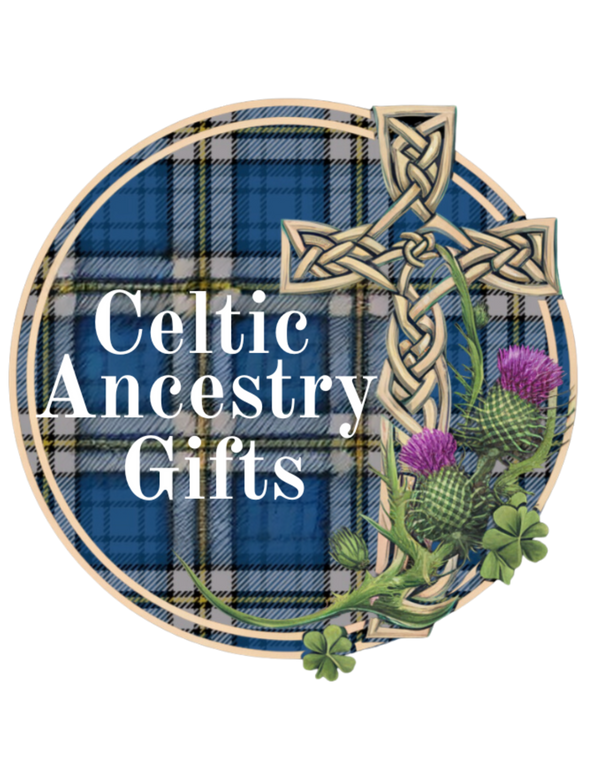
The Enduring Legacy of Clan Hunter: A Comprehensive History Spanning Centuries and Continents
Share
The Ancient Roots of Clan Hunter: From Norman Conquest to Ayrshire Heartland
The history of Scottish clans is a profound tapestry, intricately woven with threads of loyalty, territorial defense, and the enduring bonds of kinship that have shaped the very fabric of Scotland. Among these storied lineages, Clan Hunter stands as a beacon of resilience and distinction, boasting a history as rich and varied as the rugged Scottish landscape itself. With origins that delve deep into the medieval period, the name Hunter has, for centuries, been synonymous with martial prowess, steadfast guardianship, and an intrinsic connection to the land they called home. While the precise genesis of the clan remains somewhat veiled in the mists of time, its palpable presence in the historical record is undeniable, particularly its deep entrenchment in the west of Scotland, specifically in the verdant region of Ayrshire.
The very name 'Hunter' inherently suggests a significant and foundational role in the early societal structure of Scotland. It is widely believed within genealogical and historical circles that the clan's progenitor was a Norman knight named Guglielmo 'the Hunter'. This influential figure is thought to have accompanied King David I of Scotland to Scotland during the tumultuous 12th century, a period marked by significant Norman influence and the consolidation of royal power. Guglielmo was subsequently rewarded for his service and loyalty with substantial land grants in what is now the historic county of Ayrshire. This strategically vital region would, for centuries to come, become intrinsically and inextricably linked with the Hunter name and its fortunes. These extensive lands provided the nascent clan with not only a strategic foothold but also the essential resources necessary for its growth, consolidation of power, and eventual influence within the Scottish nobility. The name itself, a testament to their early and vital role in society, likely signified a person of considerable importance, perhaps even a royal huntsman or a master of the hunt, roles that carried both prestige and considerable responsibility.
Rise to Prominence and Early Struggles: Navigating a Turbulent Medieval Scotland
As Clan Hunter diligently established its foundational roots in the fertile lands of Ayrshire, it began the arduous process of carving out its distinct identity. This was achieved through dedicated service, strategic alliances, and often, through the crucible of conflict. Like many burgeoning Scottish clans, their fortunes were profoundly tied to the prevailing political currents and the ever-shifting alliances of medieval Scotland. The clan consistently demonstrated its formidable martial prowess in various skirmishes and significant battles that defined early Scottish history. Their unwavering commitment to the Scottish crown, coupled with their fierce determination to defend their territorial integrity, meant they were frequently embroiled in the turbulent politics of the era. This often involved defending their ancestral lands against rival clans, ambitious neighboring lords, and external threats, thereby solidifying their reputation as formidable warriors and loyal subjects. The strategic location of Ayrshire, bordering volatile territories, often placed the Hunters at the forefront of regional conflicts, necessitating constant vigilance and a highly disciplined martial force.
One of the earliest and most historically significant recorded chiefs of the clan was William Hunter of Cronberry, a figure whose life is documented in the 13th century. His descendants continued the lineage of leadership, diligently working to solidify the clan's position and expand its influence within the heart of Ayrshire. The clan's early holdings were strategically centered around significant estates such as Hunterston, a location that would evolve to become the clan's ancestral seat and a powerful symbol of their enduring presence and deep-seated connection to their patrimony. The Hunter family motto, 'Currens sursum', which translates elegantly from Latin as 'Running Upwards', serves as a potent reflection of the inherent spirit of ambition, progress, and unwavering perseverance that has consistently characterized the clan throughout its long and storied existence. This motto perfectly encapsulates their drive to overcome obstacles and continuously strive for betterment, a quality that has undoubtedly served them well across the centuries of their existence.
The Hunter Clan in the Annals of Scottish History: Participation and Influence
Throughout the pivotal medieval and the transformative early modern periods of Scottish history, Clan Hunter played a consistent and significant role in the broader national narrative. Their involvement in crucial national events, ranging from the epic Wars of Scottish Independence to the deeply divisive Jacobite uprisings, unequivocally demonstrates their continuous participation in the very shaping and defining of the nation. The clan's history is interwoven with the major historical epochs that defined Scotland's journey towards nationhood and its place in the wider European context. Their resilience and adaptability were key factors in their continued relevance through periods of intense social and political change.
Key historical periods and their particular impact on Clan Hunter include:
- The Wars of Scottish Independence (13th-14th Centuries): In common with the vast majority of Scottish clans, the Hunters undoubtedly contributed vital manpower and military support to the tenacious struggle for Scottish independence against persistent English domination. Their unwavering loyalty and martial contribution would have been absolutely crucial in solidifying their standing and reputation within the broader Scottish military landscape. Figures from the clan are believed to have fought alongside legendary Scottish patriots, embodying the spirit of national resistance.
- The Reformation and Religious Strife: The profound religious upheaval of the Scottish Reformation, which swept across the nation in the 16th century, impacted all Scottish clans significantly. Clan Hunter, like many of its contemporaries, would have navigated these tumultuous changes, with individual members potentially aligning with different religious factions, reflecting the complex spiritual landscape of the time. The shift in religious adherence often led to new political alignments and internal clan dynamics that required careful management by clan leaders.
- The Jacobite Rebellions (18th Century): While perhaps not as overtly prominent in the dramatic history of the Jacobite cause as some of the more powerful Highland clans, members of Clan Hunter did indeed participate in these fervent attempts to restore the exiled Stuart monarchy to the British throne. Their involvement, though potentially on a smaller scale compared to other clans, highlights their continued commitment to certain deeply held principles of loyalty and tradition. The clan's participation, often through individual choice rather than a unified clan mandate, reflects the divided loyalties present throughout Scotland during this turbulent period.
- Emigration and Global Dispersion: From the 17th century onwards, driven by various economic and social factors including agricultural changes, political unrest, and the allure of new opportunities, many members of Clan Hunter, like countless other Scots, emigrated to seek fortune and a new life. Major destinations included North America (particularly the United States and Canada), Australia, and New Zealand. This global dispersion ensured the Hunter name and heritage spread far and wide, creating diaspora communities that maintain strong connections to their Scottish roots.
The Hunter Clan Today: Preserving a Rich Heritage for Future Generations
In the contemporary era, Clan Hunter continues to thrive and evolve, with descendants now spread across the globe, from the rolling hills of Scotland to the bustling metropolises of North America, Australia, and beyond. These individuals remain united by their shared and cherished heritage, a common thread that binds them across continents and generations. The modern clan association plays an absolutely vital role in connecting these dispersed individuals, fostering a strong sense of community, mutual support, and a shared collective identity. These organizations serve as crucial hubs for information sharing, cultural exchange, and the perpetuation of clan traditions in a modern world.
The clan maintains powerful and meaningful ties to its historical heartland, particularly in Ayrshire, the region where its roots first took hold. While the direct feudal landholdings and allegiances may have evolved significantly over the centuries, the symbolic and emotional connection to ancestral lands like Hunterston remains profoundly important. Clan members actively engage in numerous initiatives dedicated to preserving the rich history, vibrant culture, and unique traditions of the clan for the benefit of future generations. These efforts are crucial in ensuring that the legacy of Clan Hunter is not lost to the passage of time, but rather celebrated and understood by those who carry the name forward.
These vital preservation efforts include, but are not limited to:
- Genealogical Research and Support: Providing invaluable resources and support to members seeking to trace their individual lineage back to the historic Clan Hunter. Online databases, historical archives, and experienced genealogists within the clan association offer guidance and assistance, making the journey of discovery accessible to a wider audience.
- Cultural Events and Gatherings: Organizing regular gatherings, clan rallies, festivals, and educational events designed to celebrate and promote clan history, traditions, and camaraderie. These events often coincide with major Scottish cultural celebrations or historical anniversaries, drawing members from far and wide to share experiences and strengthen bonds. Highland Games are a particularly popular venue for clan gatherings.
- Preservation of Historical Sites and Artifacts: Actively contributing to the upkeep, restoration, and protection of historical sites, clan castles, and significant artifacts that bear witness to the clan's long and distinguished past. This includes supporting efforts to conserve ancestral homes and document family heirlooms, ensuring tangible links to the past are maintained and accessible for educational purposes.
- Digital Outreach and Education: Leveraging modern technology through websites, social media platforms, and online forums to share historical information, connect members, and engage younger generations with their heritage. This digital presence ensures the clan's story remains relevant and accessible in an increasingly interconnected world.
The enduring spirit and lasting legacy of Clan Hunter are a powerful testament to the profound resilience, strength, and deeply ingrained cultural significance of Scottish clan society. From its foundational Norman origins in the 12th century to its vibrant global presence today, the clan's remarkable journey through the centuries is a captivating and essential chapter in the grand, unfolding story of Scotland. It serves as a potent reminder of the deep historical roots that continue to nourish and strengthen family identity and cultural pride in the dynamic landscape of the 21st century. The story of Clan Hunter is not merely a historical record; it is a living narrative, constantly being added to by each new generation that proudly carries the name forward with its inherent spirit of 'Running Upwards'.

